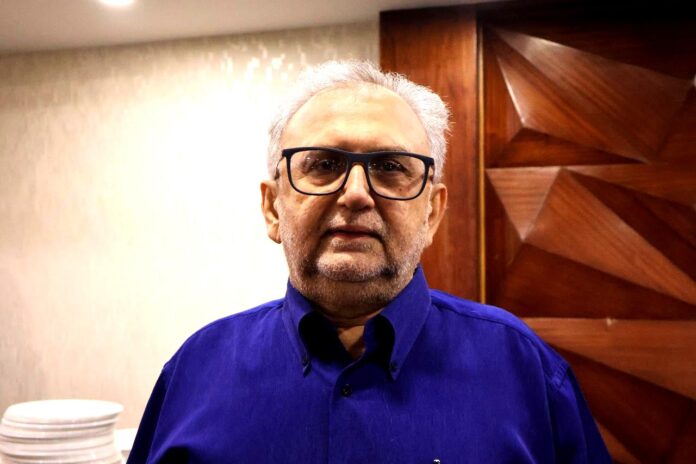Sri Vijaya Puram, May 24 — The Andaman and Nicobar Islands must be treated as an economic asset—not a perennial welfare outpost—prominent island industrialist Mohammad Jadwet said at a public dialogue held in the capital on Saturday.
Speaking during The Wave Andaman launch event, Jadwet called for a clear and long-term policy roadmap to unlock the archipelago’s overlooked economic strengths. Despite the islands’ strategic location along key shipping lanes, he said, the region remains underdeveloped and overly dependent on central subsidies.
“We’re sitting on vast land and blue-economy assets that remain largely dormant,” Jadwet said. “Other island nations have raced ahead. We’re still a subsidised state. Isn’t it time the Centre, and our own administration, did much more to convert geography into growth?”
Jadwet, Managing Director of Jadwet Trading Company and a key figure in the islands’ fisheries, shipping, and logistics sectors, said the Union Territory’s gross domestic product—estimated at under ₹10,000 crore—is still heavily underwritten by Delhi, even as sectors like tourism, marine exports, and digital services remain underutilized.
He urged the formation of a dedicated task force to evaluate high-potential areas such as deep-sea mining, fisheries, inter-island logistics, and IT-enabled services. High freight costs, poor cargo connectivity, and overlapping regulatory clearances, he added, continue to limit the islands’ real potential.
The archipelago, he noted, occupies a strategic maritime location at the mouth of the Malacca Strait, through which nearly one-third of global trade passes. It also hosts India’s only integrated tri-service military command and exercises jurisdiction over a 2.06 million sq km Exclusive Economic Zone, which holds untapped promise in tuna, seaweed, and marine minerals.
Jadwet said local entrepreneurs are willing to work with both the local administration and the central government if supported with clarity, continuity, and a responsive policy framework. “We are vocal for the local. What we need now is a framework that recognises our geographic and economic value,” he said.





